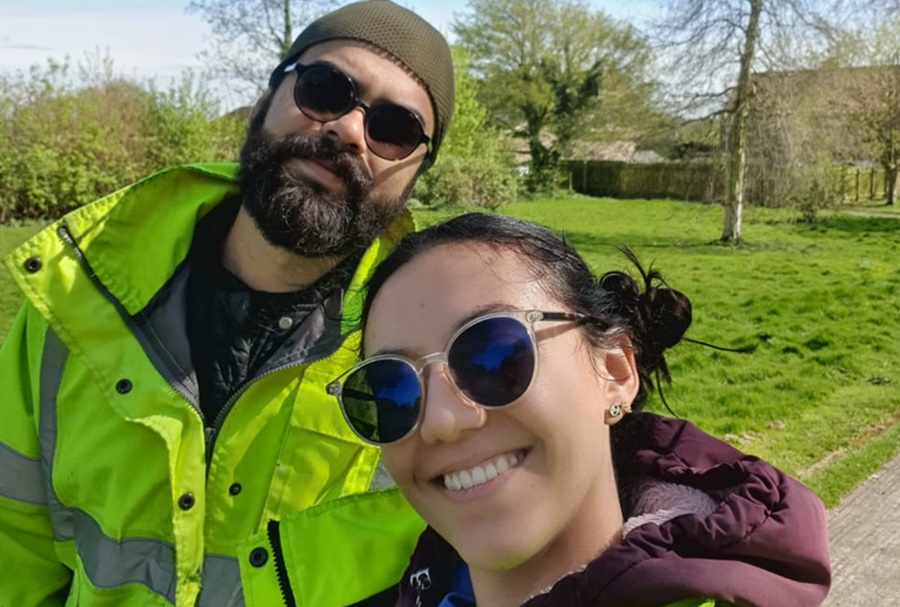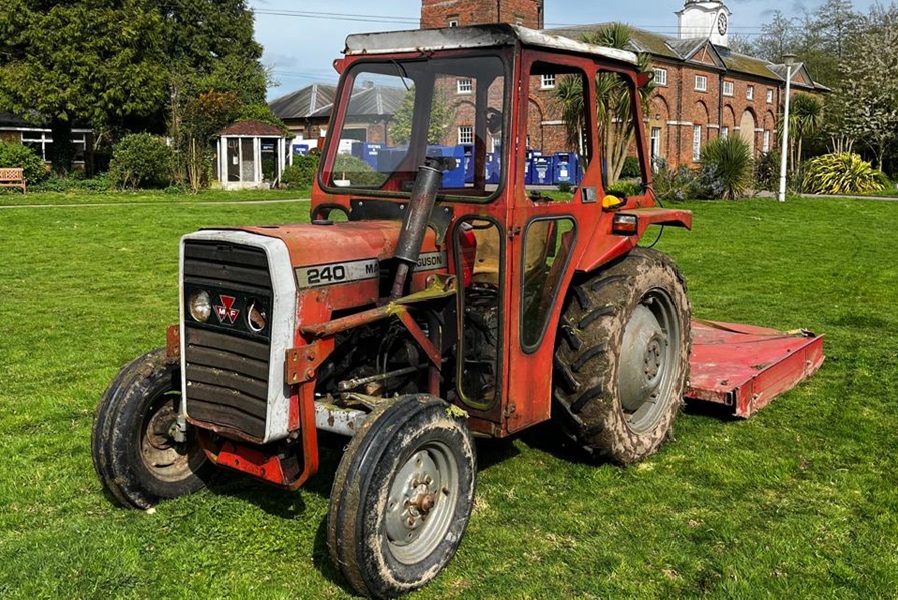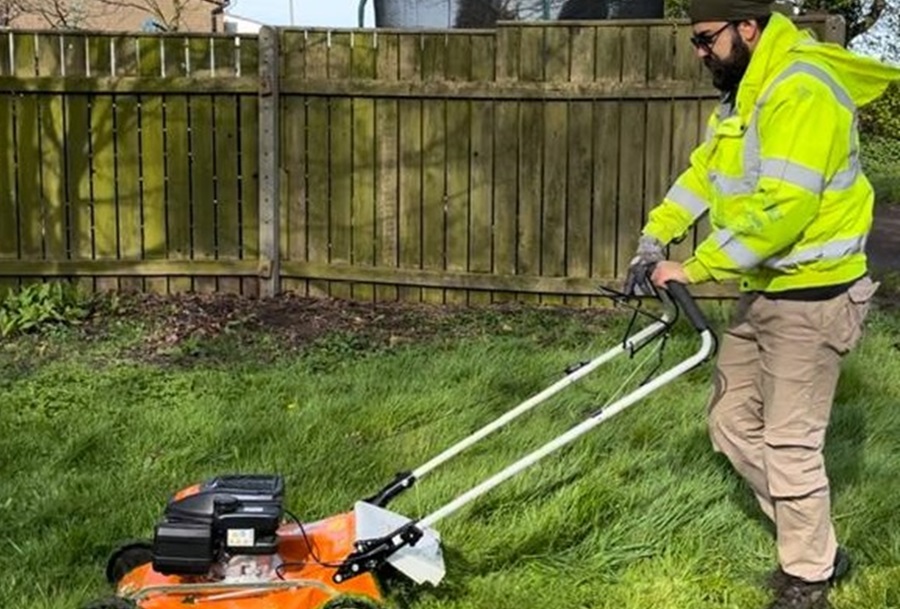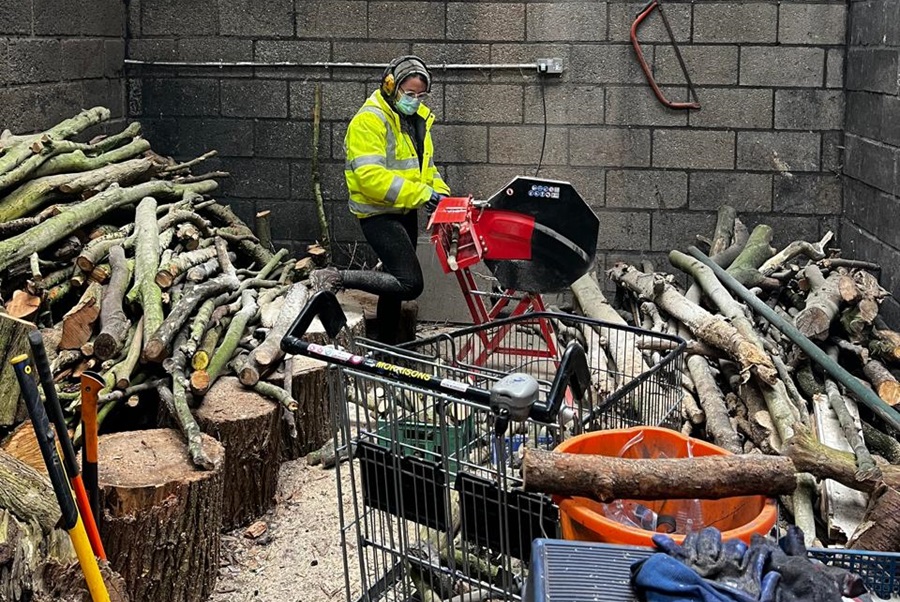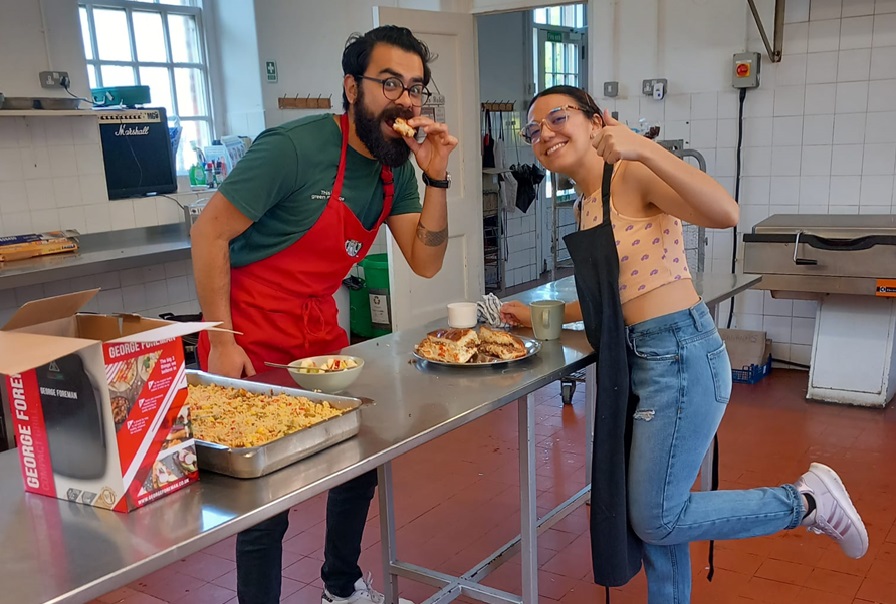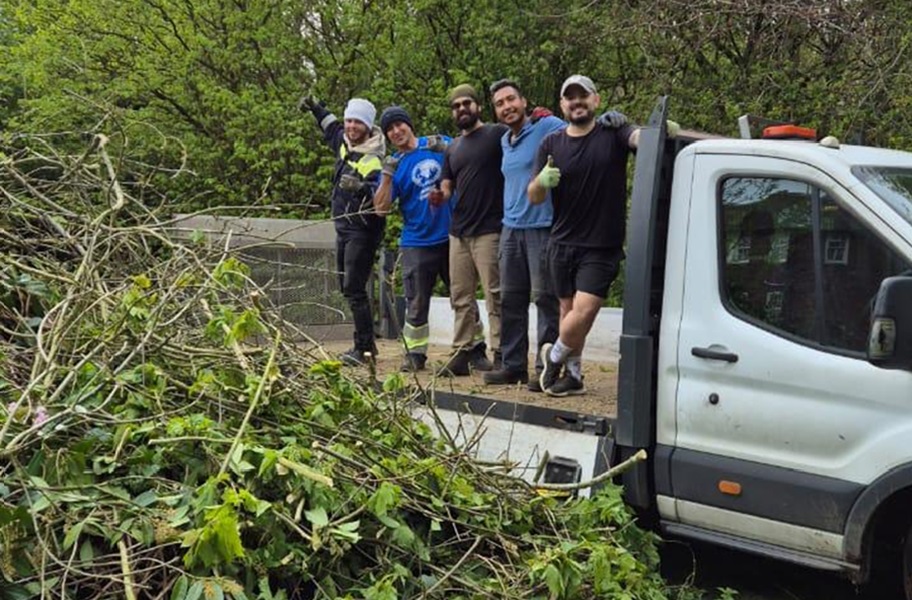My responsibility area: Grass & Wood
By Sebastián Rey, Development Volunteer team, April 2024
My responsibility area is "Grass and wood". It's an experience to value the work in the countryside.
Every Wednesday, I step out of the desk, put on my boots, and dress in warm clothing. The meeting to receive instructions is at 9:00, and we are five minutes late. After listening carefully and asking a few questions, I'm ready to start my first day driving Fred, a 1973 Massey Ferguson tractor. It is the biggest machine at the school. Though it has lost the streetlights, mirrors, and some glass panels, and its doors do not close properly, and many of its parts are rusty, it is still the best for cutting the largest grass fields around the school, doing so quickly and efficiently.
I engage the fourth gear and start driving the tractor, which is twice my age. It is very noisy, and the cabin smells of diesel smoke. At the same time, Mary is pulling the lawn mower’s starting rope. She looks at me with envy because she also wants to drive the tractor. I pretend not to see her and continue my task. My responsibility is to cut large grass strips, while Mary cuts the edges of the fields and around the trees with her mower. Occasionally, I need to check if the blades are spinning properly because it is likely that one of the engine screws will come loose and the machine will stop cutting.
The body is noticing….!
After two hours, my waist starts to hurt from constantly turning to look back and monitor where the blades are cutting. This is when I really miss having mirrors. Fred's engine turns off; it is break time. Sharing a sandwich with Mary, she tells me her shoulders, arms, and back hurt. Although the mower is relatively easy to use, pushing it for a long time over uneven fields requires significant physical effort. Besides, she needs to bend down and pick up all the branches to prevent the machine from suffering damage or to protect her feet from flying debris.
After the break, we resume our tasks for another hour and a half until lunchtime. When we finish, it feels good and satisfying to see the grass cut and the fields well-maintained. Unfortunately, that feeling does not last long, as we will soon discover.
More new machines to operate
One week has passed since my first time; it is Wednesday again. We are on time for the morning meeting, and today we will use the strimmer machine for the first time. There are two of them, so we are working together, dressed in quilted trousers and protective headbands. We start by fueling the machines, inserting new cutting cables, and learning the technique. It requires finding the exact point to bring the machine close to the ground: if it is too far, the cable does not cut, but if it is too close, the cable gets cut and needs to be replaced.
After some training, we begin our mission. Some rabbits have been eating the carrots in the garden, so we need to find their burrows by cutting all the undergrowth. The underbrush slowly begins to disappear, but the stinging nettles make the task even harder, sometimes hurting our hands, and the trunks of other plants occasionally hit our faces. After a long time cutting, we finally find the burrow. Now it is up to the garden team to plug it and apply repellent.
Preparing next year’s heating
To close the day, we need to cut and organise the wood. There is an industrial and safe machine to cut large trunks and branches into smaller pieces for the fire wood stove. For this task, we sometimes need to gather all the wood around the school using a wheelbarrow and store it ready for cutting. Inside the cutting room, wearing a mask is almost mandatory due to the sawdust everywhere, which is easy to inhale. These tasks tire the body; some trunks are heavy, and the machine requires constant pushing. To motivate ourselves, we treat this job as our workout for the day.
As we leave the cutting room, we notice that the grass we perfectly cut one week ago is high and uneven again. It is easy to feel disappointed, realising that maintaining the grass and park area is a never-ending task.
Getting to know another kind of work
Reflecting on the work we have been doing these months, and being aware of the effort it requires, I now have a deeper appreciation for the work that thousands of people do daily in the countryside. It is easier to value the hard work away from the laptop and desk, the tasks that demand your entire body and effort, and the perseverance to do them throughout a lifetime. Many city dwellers depend on the work of people in farms and fields, receiving food, raw materials, transport, manpower, and especially knowledge from them.
Sometimes, experiencing this work firsthand is necessary to truly understand that the grass does not cut itself, that operating machines requires skill and training, and that wood does not just appear on the bonfire. It is important to value hard work, our privileges, and commodities, and to realize that in the countryside, everything has a purpose. If you do not do the work, no one else will do it for you.





